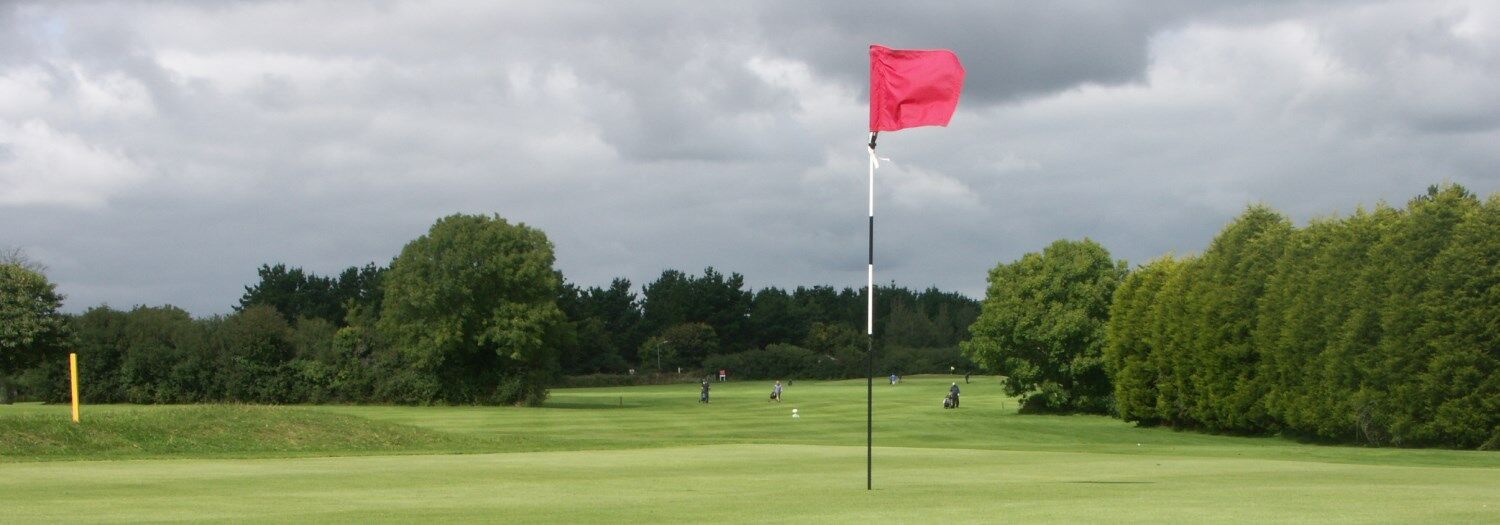Conference Call to Action - 'The Time is Now'
Friday 30th January 2015
Devon and Cornwall Golf Partnership Conference - Boringdon Park GC, Plymouth Wednesday 28th January 2015
Keynote speaker, Chris Brindley of Metro Bank delivers to a spellbound audience at Boringdon Park.
Some 135 delegates from clubs across the two counties of Devon and Cornwall attended the Golf Partnerships annual conference at Boringdon Park GC, Plymouth on Wednesday. Attendees included club managers, secretaries, committee members, junior organisers, PGA Professionals and representatives of both county’s Golf Unions and Associations all keen to hear about the current state of the game in terms of national club membership levels.
The conference, which was organised by the ever keen County Development Officers Simon Wood (Cornwall) and Paul Cloke (Devon), saw a variety of speakers deliver presentations on different aspects of the need to increase club membership levels under the banner of ‘The Time Is Now’.
Keynote speaker was Chris Brindley the MD at Metro Bank, Britain’s first new High Street bank in over 100 years and which offers a unique focus on customers through unparalleled levels of service and convenience. The bank seeks to reinvent the rules of retail banking, making every effort to remove all ‘stupid’ bank rules from day to day services to offer simpler and more convenient banking for the customer.
Brindley led the delegates through a series of thought provoking and stimulating steps based on the absolute need for change despite any reluctance based on history or tradition and without which he suggested golf has a shelf life of only another 40 years, this based on the current levels of membership decline the game is experiencing.
After delegates had broken up into smaller groups to consider the questions of what key changes are required to stop the decline in golf club membership and what the obstacles are to change, Brindley urged those present to challenge existing practices and to seek customer focussed solutions in what he termed a do or die climate. He suggested golf clubs are a fantastic community asset which in the main are not used to their full potential. Are we making lives better in our community, are we selling the health benefits of the game, are we putting our customers first and making fans of them, are we making the most and identifying our own unique selling points, (our ‘uncut diamonds’)? He spoke of the three revolutions across society, the technological, the customer and the world order, all of which have driven change. We need to embrace that change and react accordingly. He encouraged management mosaic with all the pieces coming together as one in a family oriented more welcoming environment open to all and encouraged more diverse facilities for both ethnic and disability groups and for those who in today’s world are ‘time poor’. He concluded by saying the time is now for golf and that instead of believing ‘opportunity is nowhere’ we should be adopting the approach ‘opportunity is now here’.
In a presentation led by Justin Branton, PGA West Region Development Manager he surprised delegates with the figures relating to golf participation. Of golf club members 93% are ‘social golfers’ with just 7% being competitive. Elite golfers nationally form less than 1% of the total membership. On that basis alone we should be seeking to increase the enjoyment for the majority of our members. He drew parallels based on American research and referred to surveys which showed that coaching programmes lead to member retention and increased on site spending. This was a direct encouragement aimed at club professionals who need to be more proactive in their approach to increasing membership numbers.
Chris Hicks of England Golf’s Business Services Executive spoke to those present about attracting customers and in turn creating members. He referred to the services England Golf can and wish to provide to assist clubs in a variety of areas covering club marketing, business planning and delivering customer and market insight. He suggested clubs should regularly survey their membership as part of identifying a goal and the clear vision to achieve it and referred to the SWOT analysis process as a structured planning method used to evaluate the strengths, weaknesses, opportunities and threats involved in a project or in a business venture. He made delegates aware of the ‘toolkits’ which are available to assist clubs as he too sought to encourage them to sell those strengths and to target the weaknesses.
Padbrook Park Golf Club’s PGA Professional Stuart Disney spoke of initiatives undertaken at the club which had delivered not only increased enjoyment for all ages but which had also led to increased membership. Engaging with the local community had been a key factor with examples including how the Ladies section had all invited a non golfing friend to participate in a four hole event followed by a cream tea - Devon style! This had proved very successful with a membership take up. Padbrook had at minimal cost created a par 3 course using existing holes and in turn staged fun competitions for all sections which had been very competitive and enjoyable. He suggested options to further increase that enjoyment in the form of Speed Golf, Mulligans, Rules education, limited numbers of actual golf clubs for competitions and Night Golf, all of which have proved popular. He recommended the ‘Get Into Golf’ programme to clubs and pleaded with his fellow professionals to engage across the board and to play their part in the many efforts required to grow the game.
Elizabeth Lehan, the Golf Manager at The Point at Polzeath delivered a very professional presentation centred on the need for a club to not only have a good business plan in place but also how that plan can then impact on a club’s success. She spoke of plan content and how the club had progressed through many plan based and consequently measurable challenges as it’s new owners seek to deliver their vision of a modern friendly club in an area which already has two very established and successful clubs. Assets at The Point do not just include the golf course but also newly built holiday accommodation, a restaurant, tennis and health clubs, including a swimming pool and even a landing strip. All of these are constituent parts of the innovative business plan.
'The final presentation of the day was by Paul Cloke and Simon Wood. They talked about the plans going forward for both counties. Paul discussed some of the findings from the club surveys carried out over recent months in both counties and provided a good insight into some key themes from clubs in Devon and Cornwall. This included information about how the majority of clubs are still losing members year on year, that 90% of clubs that have introduced flexible golf memberships options at their club have seen a positive impact on the club and 95% of clubs are interested in being involved in England Golf's Get into Golf campaign. Simon finished the day by discussing the Get into Golf journey and how creating a structured pathway for beginners will maximise the number of beginners who will become full members at a club. Simon's closing slide was about National Golf Month during May and he urged all the golf clubs and PGA Professionals in the room to get behind this project and offer coaching, playing and membership opportunities throughout May.
Overall the conference provided many ideas on action required by those involved in club membership and the need for constant change and evaluation of process. Delegated leaving spoke of a renewed interest in taking steps to face and deliver on the many present day challenges.
The conference was held as news emerged that the number of regular golfers quitting the sport slowed during 2014, according to a survey conducted by Sport England. The quit rate in 2014 was 3% compared to a 12% drop in the previous year. Despite the arrest in the decline it is clear much remains to be done to increase participation in the game. The Time is Now.






